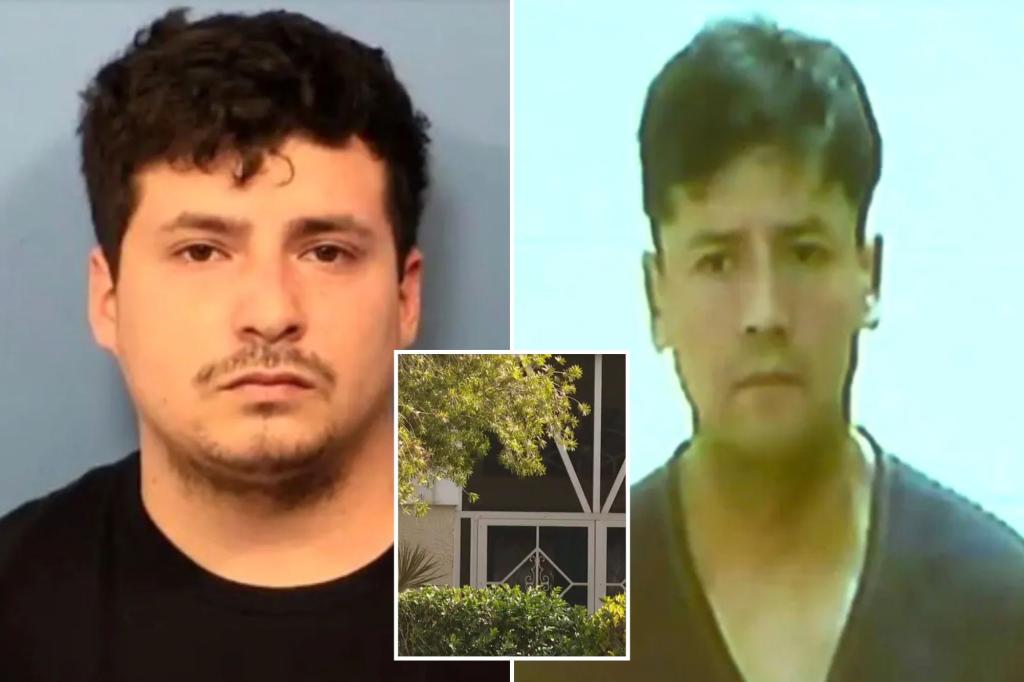On Thursday night, a homeowner in Lakewood Ranch, Florida, found himself confronting a life-or-death situation when two masked intruders broke into his home. Alerted by his motion-activated surveillance system, the homeowner swiftly took action, instructing his wife to seek safety while he armed himself and prepared to defend his family and property. The encounter escalated quickly, resulting in the homeowner discharging his firearm, fatally wounding one of the intruders and leading to the arrest of the other. This incident underscores the complex and often contentious issue of self-defense within the home and the legal ramifications that follow.
The deceased intruder was identified as 27-year-old Jorge Nestevan Flores-Toldeo, a Mexican national with a history of criminal activity. Authorities confirmed that Flores-Toldeo had an active warrant for a parole violation stemming from a previous residential burglary conviction. Just a month prior to the fatal confrontation, he had been released from jail after serving a four-month sentence. This information painted a picture of a repeat offender, raising questions about the effectiveness of the parole system and the potential dangers posed by individuals with a propensity for criminal behavior. The incident also reignited the debate surrounding immigration policies and border security, particularly concerning individuals with criminal records who overstay their visas.
The surviving intruder, 39-year-old Michael Soto-Mella, a Chilean national, was apprehended a short distance from the scene with the assistance of a K9 unit. Investigations revealed that Soto-Mella was in the United States illegally, having overstayed a visa that expired in September. He currently faces charges of armed burglary, with the possibility of additional charges pending as the investigation continues. This case highlights the challenges faced by law enforcement in dealing with individuals who enter the country legally but then violate the terms of their visas, effectively becoming undocumented immigrants. This issue adds another layer of complexity to the broader immigration debate.
Manatee County Sheriff Rick Wells commended the homeowner’s quick thinking and decisive action, stating that the homeowner’s preparedness likely saved lives. Sheriff Wells emphasized that in Florida, homeowners have the right to defend themselves and their property against intruders. His statement, “If you want to break into someone’s home, you should expect to be shot,” reflects the state’s “stand your ground” law, which allows individuals to use deadly force if they reasonably believe it is necessary to prevent imminent death or great bodily harm to themselves or others. This law, while intended to protect homeowners, has been the subject of much debate and scrutiny, with critics arguing that it can lead to unnecessary violence and racial profiling.
The incident sparked a wave of discussions regarding home security, self-defense, and the rights and responsibilities of homeowners when faced with intruders. Many lauded the homeowner for protecting his family and property, emphasizing the importance of being prepared for such situations. Others expressed concerns about the escalating violence and the potential for tragic outcomes in such confrontations. The case also raised questions about the efficacy of the criminal justice system in preventing recidivism, as well as the challenges of managing immigration and border security.
This incident serves as a stark reminder of the vulnerability of homeowners to criminal activity and the difficult choices they may face when confronted with intruders. While the legal framework surrounding self-defense provides homeowners with the right to protect themselves, it also necessitates careful consideration of the potential consequences of using deadly force. The ongoing investigation into this case will undoubtedly continue to fuel discussions about self-defense laws, immigration policies, and the broader issue of public safety. The incident also highlights the complex interplay between individual rights, community safety, and the role of law enforcement in maintaining order and protecting citizens.

